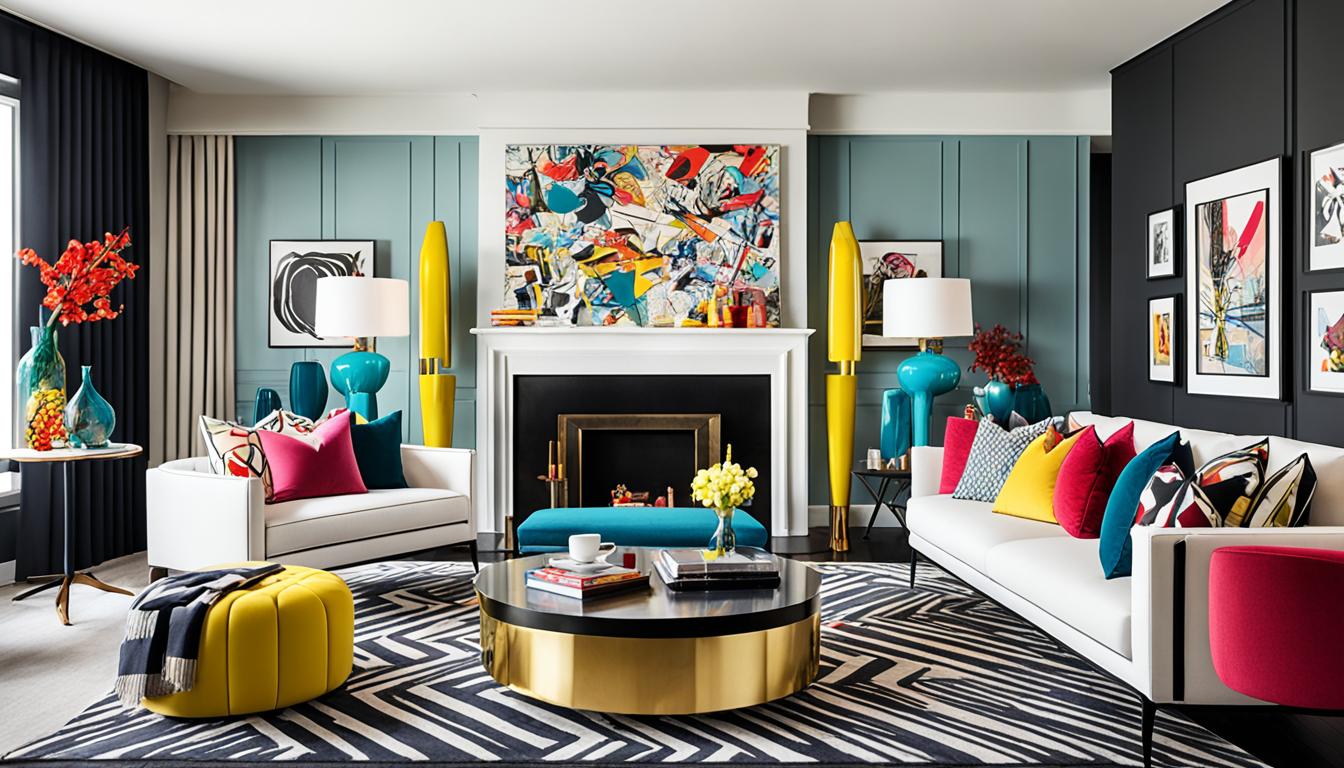Are you considering the exciting journey of becoming an interior design consultant? You’re not alone! The interior design consultant career is thriving, driven by a growing demand for professionals who can create functional and aesthetically pleasing spaces. In this article, we will guide you through the essential aspects of how to be an interior design consultant, including the vital skills you’ll need, educational pathways, and certification opportunities that can help set you apart in this vibrant industry.
As you delve into this article, you will learn that an interior design consultant’s role is multifaceted and requires a unique blend of creativity, technical expertise, and effective communication. Whether you’re drawn to residential spaces or are interested in commercial projects, understanding the nuances of this field will empower you to make informed decisions and foray into a rewarding career in interior design.
Key Takeaways
- Explore essential skills such as creative thinking and project management.
- Understand the importance of formal education in interior design.
- Learn about the different certifications and licensure requirements needed.
- Discover practical steps to build your portfolio and gain experience.
- Utilize networking and social media to find job opportunities.
Understanding the Role of an Interior Design Consultant
Embarking on a career as an interior design consultant opens up a world of creative possibilities. You will take on responsibilities that encompass client interaction, project management, and technical design tasks. Understanding the specific duties and qualifications needed for this role is essential for pursuing interior design consultant job opportunities.
What Does an Interior Design Consultant Do?
Your role as an interior design consultant involves creating functional and aesthetically pleasing environments. This can range from residential spaces to larger commercial projects such as hotels and airports. Key responsibilities often include:
- Collaborating with clients to transform their ideas into workable designs
- Managing project budgets and timelines to ensure successful delivery
- Utilizing software like CAD for precise design and planning
- Coordinating with architects and contractors to integrate architectural elements
Interior design consultant qualifications typically include a Bachelor’s degree in fields such as graphic design or interior design, along with competencies like problem-solving, creativity, and a keen eye for detail.

Difference Between Interior Designers and Interior Decorators
While the terms often get used interchangeably, there are critical distinctions between interior designers and decorators. Interior designers generally incorporate both architectural and aesthetic elements in their work. They may delve into the specifics of a space’s layout and building structure, while decorators usually focus on the decorative aspects. Understanding this difference is crucial for your journey as a prospective consultant.
The design field offers a wealth of opportunities. Positions exist in various sectors, from furniture stores to engineering firms, showcasing a diverse landscape of interior design consultant job opportunities. As you explore this exciting field, recognizing the skills and qualifications required will set the stage for a prosperous career.
How to Be an Interior Design Consultant: Key Skills Needed
To thrive as an interior design consultant, you need a diverse set of skills that bridge creativity with practical application. As the demand for interior design services continues to grow, the importance of honing your interior design consultant skills cannot be overstated. Understanding what these key skills are will guide you in the steps to becoming an interior design consultant.
Creative and Technical Skills Required
The foundation of any successful interior design consultant lies in a combination of creative and technical abilities. Creativity allows you to develop unique designs tailored to your clients’ preferences. Knowledge of design software plays a crucial role in visualizing concepts. Clients increasingly expect to see 2D and 3D representations of their spaces, so proficiency in computer-based design programs is essential. Skills such as product knowledge, understanding the design process, and familiarity with sustainable practices are becoming increasingly relevant. With eco-conscious clients on the rise, being able to recommend eco-friendly features will set you apart.
Importance of Communication Skills
Strong communication skills are essential in effectively conveying ideas and understanding client expectations. You will find that active listening helps foster a positive relationship with clients, ensuring their voice is heard throughout the design process. Engaging in conversations that reflect a clear understanding of client needs will result in satisfactory outcomes and repeat business.
Project Management and Business Acumen
Successful interior design consultants are also adept project managers. Being highly organized translates into the ability to complete projects on time and within budget, which is vital in securing future commissions. Business acumen is equally important, enabling you to navigate financial aspects of projects while maximizing profitability. Understanding market trends, such as the $12 billion revenue projection for interior services in the United States, will provide further insight into the industry’s dynamics.

Education and Training for Aspiring Consultants
To embark on a successful journey as an interior design consultant, obtaining the right educational background is crucial. Various educational paths exist, including formal degrees, certifications, and online training courses, each offering unique benefits. This foundational knowledge enhances your credibility and prepares you for a fruitful career in this dynamic field.
Formal Education: Degrees and Certifications
Many professionals in the interior design consulting field start their careers with a bachelor’s degree in design-related fields such as graphic design, industrial design, or architecture. Programs accredited by organizations like the National Association of Schools of Art and Design are excellent choices. For those seeking certification, various options offer specialized training. Programs like the one from The Interior Design Institute provide essential interior design consultant training, costing $999. This option includes flexible payment plans, making it accessible for many individuals.
Impact of Design School on Career Opportunities
Attending a reputable design school can significantly affect your career prospects. The New York School of Interior Design, while starting at $1150, delivers a robust curriculum that increases your competitive edge. Graduates often find employment opportunities across various sectors, leveraging their training to meet the growing demand for design expertise. Networking at design schools can also facilitate connections with professionals in the industry.
Online Courses and Workshops
Online courses provide an affordable alternative for continuing education. Platforms such as Udemy offer courses starting at just $13.99, allowing you to learn at your own pace. Masterclass, with payment plans from $15 per month, further supports ongoing professional development. Engaging in these opportunities not only boosts your skills but also contributes to earning interior design consultant certification, keeping you updated on industry trends and techniques.

Steps to Becoming an Interior Design Consultant
Embarking on a career as an interior design consultant involves several essential steps for starting your career. Understanding the necessary qualifications and experience will prepare you for this vibrant profession. From building a strong portfolio to networking, each step plays a vital role in your journey. Seeking guidance from an interior design mentor can also provide invaluable insight and advice as you navigate the industry. Additionally, pursuing opportunities for internships or apprenticeships with established design firms can further enhance your skill set and provide real-world experience. By actively engaging in these essential steps, you can position yourself for success in the competitive field of interior design.
Essential Steps for Starting Your Career
The first step involves obtaining the right education. Most interior designers typically hold a bachelor’s degree. Many programs emphasize courses in design principles, color theory, and space planning. After formal education, gaining practical experience is crucial. Look for internships or entry-level positions to immerse yourself in real-world projects.
Building a Solid Portfolio
A well-composed portfolio showcases your design aesthetic and skills. Include a variety of work samples, such as sketches, renderings, and photographs of completed projects. Ensure to highlight different styles and types of work. This collection serves as your professional calling card, reflecting your creativity and vision.
Networking and Gaining Experience
Networking within the design community is essential for career advancement. Attend industry events, workshops, and conferences to meet professionals who may provide mentorship or job opportunities. Join design associations like the International Interior Design Association for broader connections. The more you engage, the richer your resource network becomes.

| Degree Type | Percentage of Interior Designers |
|---|---|
| Bachelor’s Degree | 68.4% |
| Associate Degree | 19.1% |
| Other Certifications | 12.5% |
Understanding these paths ensures you meet the interior design consultant qualifications needed to thrive. By following these steps and remaining committed to growing your knowledge and experience, you embark on a fulfilling career in interior design consulting.
Gaining Certification and Licensure
To excel as an interior design consultant, understanding the certification and licensure process is essential. Securing your interior design consultant certification not only enhances your credibility but also opens doors to greater professional opportunities. In many areas, potential clients look for certified professionals who can demonstrate a high level of expertise. This specialized achievement can significantly elevate your standing in the industry.
The Importance of Certification in the Industry
Certification serves as a benchmark for assessing your skills in the competitive interior design field. Studies indicate that NCIDQ certified interior designers earn, on average, $16,000 more annually than their uncertified counterparts. Key certifications, such as the National Council for Interior Design Qualification (NCIDQ), prepare you for a successful career by validating your knowledge and skillset. Every certification you pursue showcases your commitment to professionalism and enhances your ability to attract clients and secure lucrative projects.
Different Licensure Requirements by State
Licensure requirements vary widely across the United States. In 27 states, holding an NCIDQ license is mandatory, while other states permit unlicensed individuals to work but restrict the use of the “interior designer” title to those who are licensed. For instance, residents of California must pass the California Council for Interior Design Certification (CCIDC) exam to practice legally. Whether you choose to pursue an associate’s or a bachelor’s degree in interior design, additional related work experience is generally necessary before you can sit for the licensing exam. The amount of experience required may range from two to five years, depending on your educational background.

Finding Job Opportunities as an Interior Design Consultant
As you embark on your journey to become an interior design consultant, understanding the different avenues available for securing job opportunities is essential. This section highlights the benefits and challenges of freelancing versus seeking employment with established design firms. You will also discover how to leverage social media and networking to enhance your job search.
Freelance vs. Employment in Design Firms
Choosing between freelancing and working for a design firm comes down to your personal goals and lifestyle preferences. Freelancing offers flexibility in terms of projects and hours, allowing you to shape your schedule. You become your own boss, which often leads to creative freedom. Yet, establishing a steady client base can pose challenges. It’s vital to invest time in building your brand and understanding market demands.
On the other hand, employment with design firms provides a stable income and access to well-established networks. You will likely collaborate with experienced professionals, gaining insights that can shape your career. The Bureau of Labor Statistics notes that interior designers typically earn an average salary of $60,340, with those in the architecture and engineering sector earning around $63,210 annually. These figures indicate the potential financial rewards of working within a structured environment.
Utilizing Social Media and Networking for Job Search
In today’s digital age, social media plays a vital role in finding job opportunities. Platforms like LinkedIn, Instagram, and Facebook enable you to showcase your portfolio, connect with industry professionals, and stay informed about job openings. Active participation in design-related groups and communities can unlock valuable networking opportunities.
Networking remains crucial in landing interviews and securing projects. Membership in organizations like the Designers Society of America (DSA) not only connects you with nearly 32,000 members but also offers avenues for professional growth. Consider reaching out directly to design firms and expressing your interest in potential openings. Engaging in internships, while not required, can provide hands-on experience that sets you apart from other candidates.

Conclusion
Embarking on the journey of becoming an interior design consultant is an exciting venture filled with opportunities. As you explore how to be an interior design consultant, it’s crucial to understand that following the steps to becoming an interior design consultant can set the foundation for a rewarding career. From acquiring the necessary education and skills to obtaining certification, each step plays an integral role in your professional development.
With the global interior design industry projected to hit $210 billion by 2027, the potential for growth is immense. The rising demand for personalized and aesthetically pleasing spaces, particularly among millennials, highlights the significance of skilled consultants in both residential and commercial sectors. By staying informed about industry trends and adapting to new demands, you position yourself for success in this dynamic field.
As you pursue your passion for interior design, remember that the challenges you may encounter—like managing diverse client expectations or adapting to varying design needs—are all part of the process. Embrace these experiences as they enhance your skills and understanding. You’re not just entering a profession; you’re becoming a pivotal player in shaping spaces that reflect people’s lives and aspirations.









